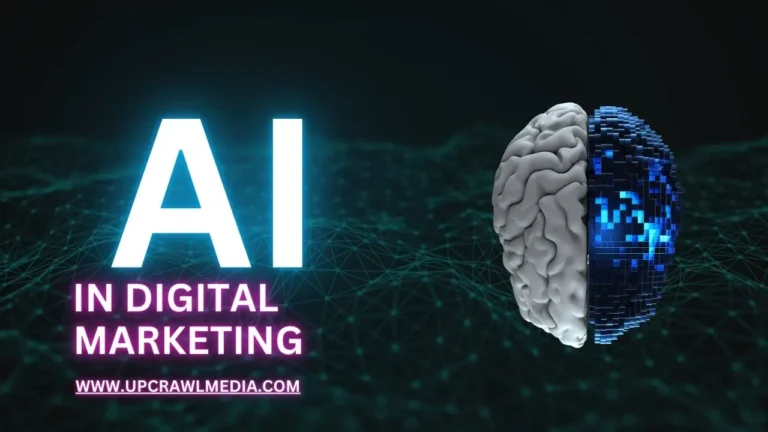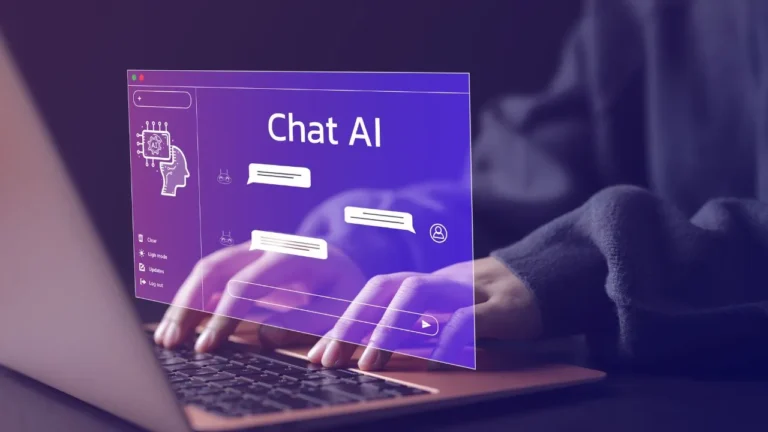
Imagine a world where a brand knows what you want before you even type it into Google—or where every product, playlist, or blog suggestion feels like it was made just for you. That’s not sci-fi anymore—that’s the everyday magic of AI in digital marketing, and it’s already transforming how businesses connect with people.
And the numbers don’t lie. According to PwC, artificial intelligence could add $15.7 trillion into the global economy by 2030 (PwC Report). In simple terms, AI isn’t just tweaking marketing strategies—it’s driving one of the biggest economic shifts of our time.
So, if you’ve ever wondered how those scarily well-timed ads appear, why your inbox has emails that actually match your interests, or how chatbots manage to answer your questions with ease—this is where you’ll find out.

When people hear the term artificial intelligence, their minds often jump to robots, sci-fi movies, or even fears of machines taking over. But AI in digital marketing is way less dramatic and way more practical. It simply means using smart algorithms and machine learning tools to understand audiences better, make predictions, and automate repetitive tasks that usually eat up a marketer’s time.
Instead of marketers guessing what works and what doesn’t, AI uses huge amounts of data—things like browsing history, past purchases, social media activity, and even how long someone hovers over a product image—to find patterns. These insights can then be used to tailor ads, recommend products, write optimized content, or even decide when to send an email.
Think of it like this:
And here’s the fun part—AI doesn’t get tired, doesn’t need coffee breaks, and can process information at a scale humans simply can’t. While you might be able to analyze a few hundred customer profiles, AI can process millions in seconds.
So, to put it simply: AI in digital marketing is like having a 24/7 super-powered assistant that never stops learning and is constantly tweaking strategies to deliver better results. It doesn’t replace human creativity—it amplifies it. Marketers still decide the story and emotional angle, but AI makes sure the message reaches the right person at the right time in the most effective way possible.
Instead of you manually analyzing a thousand data points from your website, AI tools can instantly find patterns: which ad is converting better, which blog post keeps people hooked, or what time your audience is most active on Instagram. It’s like having an assistant who never sleeps, never gets bored, and loves crunching numbers.

Marketing has always been about understanding people—what they want, what motivates them, and how to get their attention at just the right moment. The tricky part? Human behavior changes faster than ever. One week a trend is everywhere, and the next week it’s forgotten. That’s where AI in digital marketing steps in, and why it’s becoming a non-negotiable tool for modern marketers.
Today’s customers expect personalized experiences. They don’t want generic ads that feel like they’re made for “everyone.” They want product recommendations that fit their interests, emails that feel like they were written just for them, and even shopping experiences that adapt to their preferences. AI makes all of this possible—at scale.
Here’s the reality:
Another reason AI is becoming vital is data overload. Every click, scroll, purchase, and video watch generates data. The problem? There’s way too much for humans to sort through.
AI doesn’t just handle the volume—it finds patterns hidden inside it. For example, it might discover that customers in a certain city are more likely to buy on Thursdays after 6 PM, or that people who watch three Reels in a row are more likely to click an ad. That level of insight is marketing gold.
And let’s not forget competition. Brands that adopt AI early gain a serious edge. Imagine two businesses running online ads: one is relying on intuition, the other is powered by AI constantly learning and optimizing. Who’s going to win? Easy answer—the AI-driven one.
So the importance of AI today boils down to this: it gives marketers speed, accuracy, and personalization that human teams alone can’t match. In a world where customers are bombarded with ads every second, AI helps ensure your message doesn’t just get seen—it gets remembered.

From SEO to email marketing, there’s an AI tool for just about every corner of digital marketing. Let’s break down some of the most useful categories.
1. AI Tools for SEO and Content Optimization
Creating content is one thing, but making sure it ranks on Google is a whole different game. That’s where AI SEO tools come in.
These tools take the guesswork out of content writing and give you a clear roadmap to higher rankings.
2. AI Writing and Copy Tools
Not every marketer loves staring at a blank page. AI writing assistants make the process less painful.
Important note: These tools don’t replace your creativity—they enhance it. The best marketers use them as assistants, not ghostwriters.
3. AI Tools for Social Media Marketing
Social platforms are crowded, and timing plus creativity can make or break a post. AI gives you that extra edge.
These tools help maintain a consistent presence without eating up all your time.
4. AI for Email Marketing
Email is far from dead, but sending generic blasts? That’s a surefire way to end up in the spam folder. AI tools fix that.
The result? Higher open rates, better engagement, and fewer unsubscribes.
5. AI Tools for Advertising and Analytics
Running ads is expensive, so wasting budget isn’t an option. Luckily, AI is built for precision.
With these tools, marketers can stop manually tweaking campaigns and let AI handle the heavy lifting.
At the end of the day, AI in digital marketing tools aren’t about replacing your role—they’re about giving you a superpower. Whether you’re a one-person startup or part of a big brand, the right AI tools save time, cut costs, and deliver sharper results. The key is starting small, testing what fits, and gradually scaling up.

One of the biggest advantage of AI in digital marketing is its ability to dig deep into customer behavior. Instead of relying on surface-level data like page views or clicks, AI can uncover the why behind user actions. Here’s how it changes the game:
In short, AI transforms raw data into actionable insights. Instead of marketers spending weeks trying to piece together spreadsheets, AI instantly shows what’s working, what’s not, and what’s coming next.
The short answer: yes—big time. But let’s break it down so you can see exactly how AI in digital marketing turns investment into profit.
So yes, AI doesn’t just improve ROI—it maximizes it. By combining personalization, automation, and real-time insights.
From the chatbot that answers your midnight shopping question to the Netflix show that feels handpicked for you, AI is working behind the scenes to shape your experience. Here are some of the best, most common examples:
In short, AI in digital marketing is already everywhere—from the ads you click to the emails you open. Businesses that learn how to harness these tools don’t just keep up with trends; they set them.
Like any powerful tool, AI isn’t flawless. It can be a game-changer, but it also comes with challenges that marketers should know before diving in headfirst. Let’s break it down:
Pros of AI in Digital Marketing
Cons of AI in Digital Marketing
Bottom line: AI in digital marketing is powerful, but it’s not magic. The best results come when businesses use AI with human creativity and oversight—not as a full replacement.
At the end of the day, AI in digital marketing is all about making smarter moves, not replacing humans. It helps brands truly understand their customers, automate repetitive tasks, and deliver campaigns that resonate. Of course, there are challenges along the way, but the opportunities clearly outweigh them.
And here’s the bigger picture: digital marketing is getting more competitive every single day. The businesses that adopt AI will always have the upper hand over those who don’t, simply because they’ll be making faster, smarter, data-backed decisions. The future of marketing is already here—it’s intelligent, automated, and customer-focused. The only real question left is whether you’re ready to embrace it and ride the wave forward.